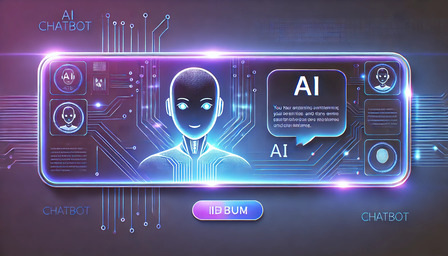Creativity has always been a defining trait of human expression, shaping art, music, literature, and innovation. However, the rise of generative AI has introduced a new challenge—machines that can produce paintings, compose music, write stories, and even generate realistic images. This raises an important question: Is generative AI pushing creativity to new heights, or is it making originality obsolete?
The Role of AI in Creative Fields
Artificial intelligence is no longer limited to automation and data analysis. It has entered the creative domain, producing outputs that closely mimic human work. AI models can generate art in various styles, compose melodies that resemble those of famous composers, and even create scripts that follow storytelling conventions.
Similarly, AI-generated content is being used in marketing, journalism, and entertainment. Businesses rely on AI-powered tools to draft social media posts, create advertisements, and personalize customer interactions. In comparison to traditional methods, these AI-driven approaches save time and resources. However, critics argue that while AI can replicate patterns, it lacks the ability to think, feel, or create something truly original.
Can AI Truly Be Creative?
Creativity is often linked to emotions, personal experiences, and imagination. While AI can analyze vast datasets and generate new outputs, it does not experience emotions or draw inspiration from lived experiences. In the same way, human creativity often involves trial and error, intuition, and an element of unpredictability—traits that AI does not inherently possess.
Admittedly, AI can produce impressive works by combining existing styles, patterns, and ideas. But is this genuine creativity or just an advanced form of imitation? Many argue that AI-generated content lacks true originality since it is based on pre-existing material.
The Debate on Originality
Originality is often defined by uniqueness and innovation. However, the use of AI in creative fields has led to concerns about the authenticity of artistic expression. Some artists worry that AI-generated content might dilute originality, making it difficult to distinguish between human-made and machine-generated work.
Despite this, AI has been a valuable tool for artists, writers, and musicians. Some use AI to assist in brainstorming ideas or refining their work rather than replacing human creativity. Still, the concern remains—will AI eventually overshadow human creators, making originality less valuable?
The Impact on Human Artists and Writers
The increasing use of generative AI has sparked discussions about its impact on professionals in creative industries. Some view it as a threat, fearing job displacement and a decline in demand for human creativity. However, others see it as a tool that can aid artists and writers rather than replace them.
Although AI can generate content quickly, it often requires human intervention for refinement. Writers, for example, use AI to draft ideas, but they still add personal touches, emotions, and depth. Similarly, artists may use AI-generated elements in their work but rely on their skills to bring originality to the final piece.
Of course, AI cannot replace the unique perspectives that come from human experiences. Creativity is not just about producing content—it is about conveying emotions, sharing stories, and inspiring others. AI can assist in the process, but it cannot fully replicate the essence of human expression.
Ethical and Copyright Concerns
AI-generated content has also raised ethical and legal questions. If an AI system produces a piece of artwork or a written work, who owns it? The original creators of the training data? The developers of the AI model? Or the users who generate the content using AI? These concerns have led to debates on copyright laws and intellectual property rights.
In particular, some artists have protested against AI models trained on their work without permission. This has led to legal disputes and demands for better regulations. As AI continues to develop, finding a balance between innovation and ethical considerations will be essential.
AI as a Collaborative Tool
Instead of viewing AI as a replacement for human creativity, many professionals have started to use it as a collaborative tool. For example, musicians use AI-generated compositions as inspiration for new pieces, and designers experiment with AI-generated patterns to refine their work.
Eventually, AI may become a standard part of the creative process, much like digital tools that artists and writers already use. The key is to use AI as an assistant rather than a replacement. By combining human intuition with AI-generated possibilities, creators can push the boundaries of innovation while maintaining originality.
The Role of AI Tools in Creativity
AI-driven solutions have made it easier for individuals to create content, even without professional skills. From automated design software to AI-powered writing assistants, these tools allow users to generate creative works efficiently. AI tools have been particularly beneficial for those who lack traditional artistic or writing training, making creative expression more accessible.
However, the concern remains—does accessibility come at the cost of originality? While AI makes content creation easier, it also raises the risk of oversaturation, where similar AI-generated content floods digital platforms. As a result, creators must find ways to differentiate their work from machine-generated outputs.
The Future of Creativity in an AI-Driven World
The evolution of AI in creative fields presents both opportunities and challenges. On one hand, AI can inspire new forms of artistic expression and streamline the creative process. On the other hand, it raises questions about authenticity, originality, and ethical concerns.
Still, human creativity has always adapted to new technologies. From the printing press to digital art software, innovation has influenced how people create and share their work. AI is just another tool in this ongoing transformation. Those who embrace it while preserving their unique perspectives will continue to shape the future of creativity.
Conclusion
Generative AI is neither the absolute future of creativity nor the end of originality. It is a powerful tool that can assist, inspire, and even challenge traditional creative processes. However, true originality comes from human experiences, emotions, and perspectives—something AI cannot fully replicate. The key is to strike a balance where AI enhances creative possibilities while maintaining the authenticity of human expression.
